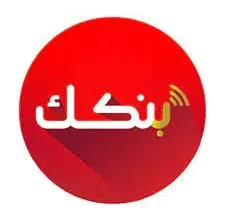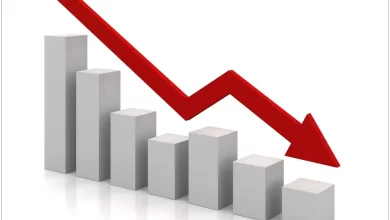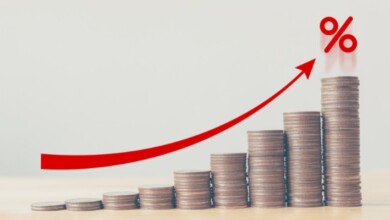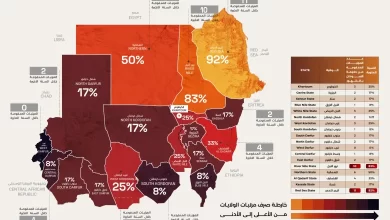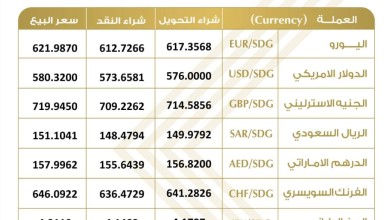Cash .. Sudan’s new gold
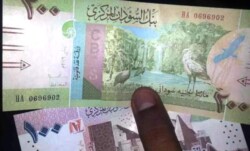 , and obtaining it became a daily battle, at a time when any hopes for obtaining cash dwindled. Money is no longer just a means of exchange, but has become a heavy burden that invites a verity of others, deeply affecting the lives of citizens.
, and obtaining it became a daily battle, at a time when any hopes for obtaining cash dwindled. Money is no longer just a means of exchange, but has become a heavy burden that invites a verity of others, deeply affecting the lives of citizens.
The New Gold.. A Daily Battle to Obtain Cash
As the crisis worsens, (cash) has turned into a rare symbol in a Sudanese market suffering significantly from the accumulated crises, exacerbating the pain of citizens and burdening them, amidst the absence of a functioning banking system and the harsh conditions in which people live.
Market Distortions.. Rising Prices and Dealing with Interest
In addition to the imposed complex reality, are other distortions that seem to increase in number and severity on a daily basis, such as the exaggerated price increases of goods sold through banking applications, compared to those traded in cash. Moreover, the spread of usury in paper currency conversion deals to electronic currency and vice versa further complicates the financial situation, making citizens victims of excessive financial exploitation.
Greed Eats Away at the Economy… High Commissions and Long Journeys
With the expanding spread of greed, bank transfers have become a trade governed by high commissions and long journeys, as people are forced to travel vast distances to reach places with internet access or people willing to exchange money. The burdens multiply, as the commission increases from (5% to 10%), and with it the transportation expenses and communication fees increase, which in turn exacerbates the scale of the tragedy.
Shock in the Face of Greed… Stimulating Stories
In this context, the stories told by citizens to “Al Arabiya.net” reveal the shock they are experiencing in the face of the ever-growing greed. For example, in many states, there have been cases in which cash is exchanged for (15%) of its value or even more in commission, which sparked a wave of anger and rejection, reflecting the harsh reality that citizens are suffering through in light of the ongoing crisis.
Journalist Nasreddin Abdel Qader recalls a peculiar incident that took place in Shambatah, Sennar state, last November, telling (Al Arabiya.net): “While we were anxiously waiting, a man came carrying a bag half full of money. He stood amongst the crowd and announced in a very cool tone that every hundred pounds through the app would be exchanged for (15%) of its value in commission. It was rather shocking, as if we were in a scene from a drama. The atmosphere suddenly flared up, and people revolted, throwing him out of the place, in a moment filled with anger and rejection of such extreme greed.”
That moment reflects the citizens’ conditions, as they face a daily battle to obtain cash, amidst this excessive exploitation.
How has cash become a heavy burden on the Sudanese citizen ?
With the increasing sense of greed in the transfer market, obtaining (cash) has become impossible without losing a large part of the amount in the form of commissions ranging from (10% to 30%), which causes a large part of the money to disappear in the battle to restore cash, as the burden on citizens in areas controlled by the various forces increases.
The Silent Trade: A Return to Old Exchange Methods
With the outbreak of the crisis, many citizens in areas such as Kordofan and Darfur are forced to return to utilizing the method of barter, where goods are exchanged for other goods through barter, or what is known as the Silent Trade; as a necessary solution to survive.
The emerging shift to utilizing old methods of exchange reflects the deep economic collapse that Sudan is experiencing, and shows how the economic crisis has knocked on the doors of villages and cities, forcing people to return to old, outdated methods of trade.
At a time when money has become rather scarce, the exchange of livestock and goods through barter is becoming the only means of dealing with daily crises.
Paralyzed Banking System: Central Bank out of Service
While the banking system suffers from almost complete paralysis due to the security conditions, more than half of the branches of the Central Bank of Sudan have been closed, making it impossible to follow the status of the national currency. The situation is worsened by the closure of roads and the difficulty of transferring money to the affected areas.
Economic Blockade.. Difficulty in Transferring Money and the Situation Escalates
In the shadows of the ongoing economic blockade, the situation is deteriorating periodically. Even in states that could be considered safe, citizens face difficulty in accessing banking services and are consequently deprived of their most basic rights. The imposed reality reflects the extent of the economic crisis in the country and exacerbates the suffering of the Sudanese citizens in the absence of any solution.

